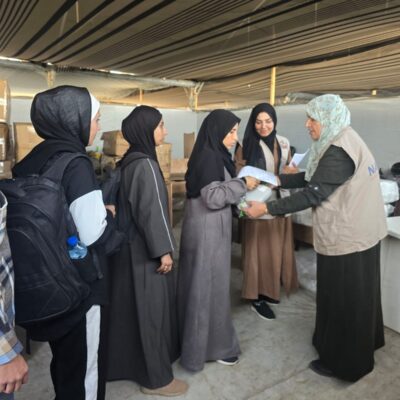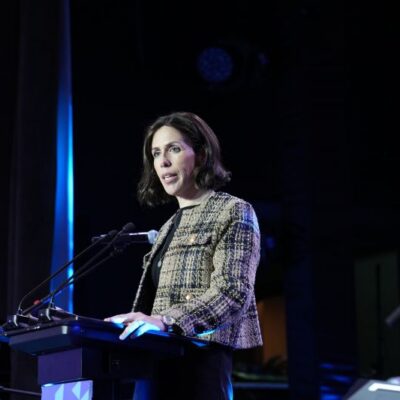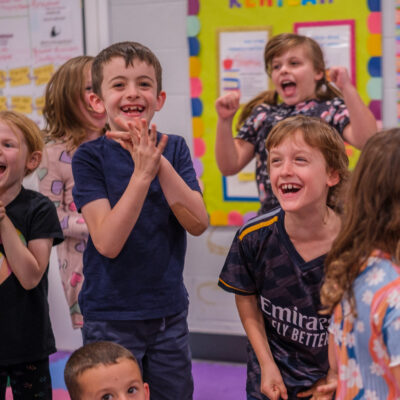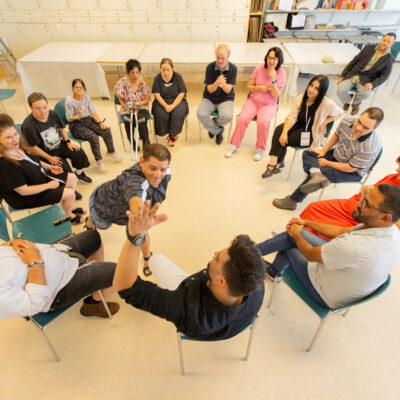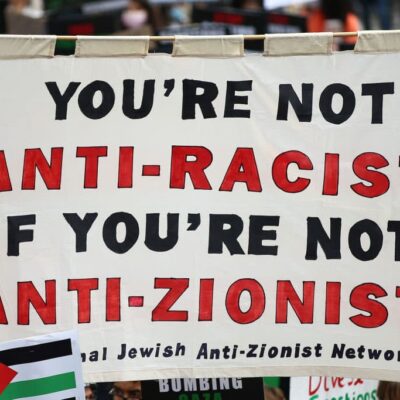Opinion
People, then programs: Building a Jewish community in the nation’s capital
On a Wednesday night at the end of June, 20 young Jewish adults attended a Washington Nationals game together. Most of the group didn’t know each other prior to arriving that evening, and most didn’t even care for baseball. In fact, the only thing this entire group had in common was that either I or my colleague Lindsay Goldman had personally asked each attendee to come hang out with us that night.
Just three weeks before the baseball game, Lindsay and I arrived in the Washington D.C. metro area with the goal of meeting college-aged interns — primarily in D.C. and the northern Virginia suburbs. We are both former Hillel interns, current rabbinical students at The Jewish Theological Seminary and Slifka-Nadich Fellows, participants in a fellowship that connects JTS rabbinical students to young adults and Hillels to teach egalitarian Torah and provide rabbinic presence, which provided us the foundational background to accomplish our summer goal: building an intentional, temporary summer community, driven by the unique relationships we develop with individuals. We hypothesized that those returning home to their parents or coming to D.C. for work for the first time may not be connected to any Jewish community, and we could replicate some of the grassroots engagement that they might experience at Hillel on their college campus. In search of this demographic, we, along with USCJ and Rabbi Daniel Novick of Mason Hillel at George Mason University, emailed all of our contacts with one simple question:
“Can you e-introduce us to college students in the area this summer who would take an hour out of their day to have coffee with a rabbinical student?”
After a week or two, and lots of follow-up (and creative outreach), our calendars were full of coffee dates. Most were with people who did not grow up involved in their congregations or Jewish communities, but were thirsty for a connection to Judaism that they had begun, for the first time, to pave for themselves. Others included folks who wanted to meet Jews their own age locally to form a community. I met students who converted to Judaism in college or grew up in interfaith families. At the coffee shop of their choice, we spent over an hour getting to know each other deeply, dreaming big of a Jewish world that included exactly who they wanted to be, and connecting over our passions.
At the end of our initial hour together I knew exactly what each student wanted out of an amorphous Jewish experience this summer. Then I faced the real challenge: how to help them achieve it. The baseball game was our first effort to bring folks together. In a thin row of nosebleed bleachers, our students mingled and got to know each other, happy to gather with people in a similar stage of life. We formed micro communities in D.C. and northern Virginia, complete with Shabbat meals, weekly lunch and learns, and more social events like axe throwing, happy hours and bowling. We grounded our work in justice, attended a few marches in D.C., and offered pastoral care to students at one of the most intense moments of the summer: when the Supreme Court overturned Roe v. Wade. In addition to hosting one-on-one conversations to process their thoughts and feelings, we learned with our students about the importance of reproductive justice in our Jewish texts.
By initially investing in one-on-one, personalized relationships, and then building grassroots gatherings based on individuals’ wants and needs, we forewent a program-first model, and the individuals came flocking towards us. Our students had autonomy to grasp their Jewish involvement in their own hands, without any institutional structures or agenda that may have historically inhibited their interest or comfort attending. Moreover, our participants didn’t intern in D.C. or come home for the summer with an expectation that there could be a personalized Jewish experience just for them — and yet we helped to facilitate just that. We applied lessons learned from our experiences working at Hillels on college campuses where we developed relationships and engaged in community organizing and crafted a novel and successful framework for the summer that put these late teens and early 20-somethings in the driver’s seat.
This summer, two rabbinical students sought to help young Jews seek meaning, find Torah, explore their Jewish story, live a Jewish life and connect with one another. And for the people with whom we’ve developed those relationships, early signs are positive that they will choose to pursue Jewish community, life and learning at the next stage of their journey. We, in turn, are moved by those who welcomed us into their lives. I look forward to watching the growth this experiment inspires in Jewish individuals and communities alike.
Lilli Shvartsmann is a rising fourth-year rabbinical student at The Jewish Theological Seminary. In her time at JTS, she has served as a rabbinic intern at Hillel at Binghamton, completed a unit of chaplaincy at Project ORE, and most recently organized the pilot project Summer in the City. She is looking forward to interning this coming year at Congregation Beth El, South Orange, N.J.

 Add EJP on Google
Add EJP on Google
